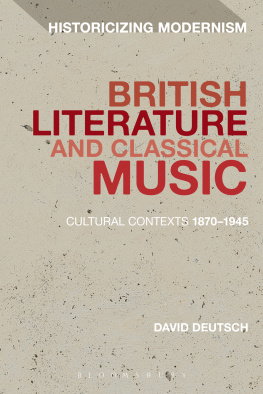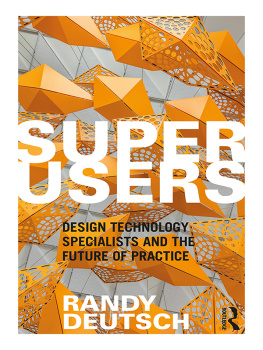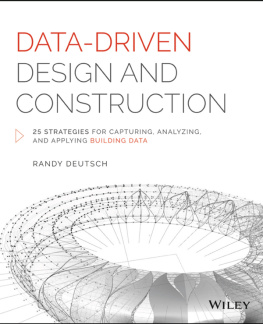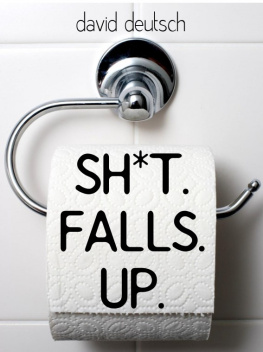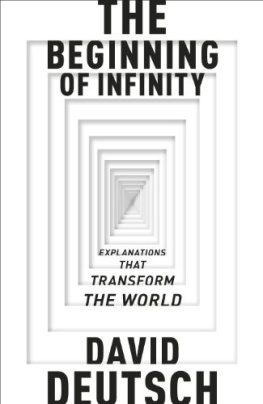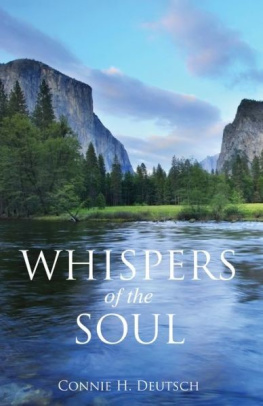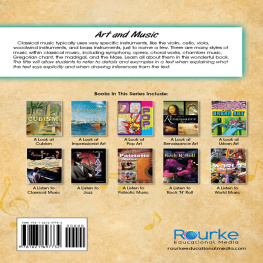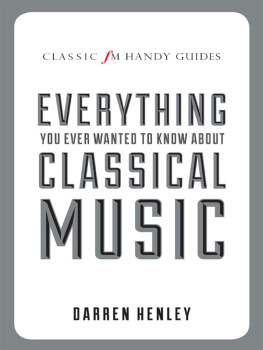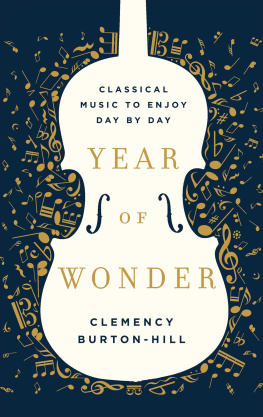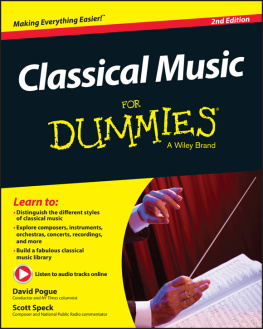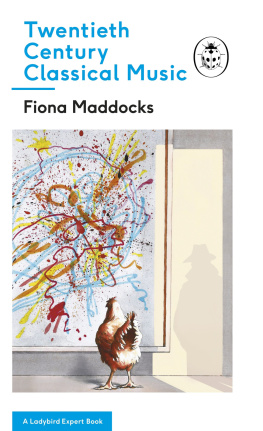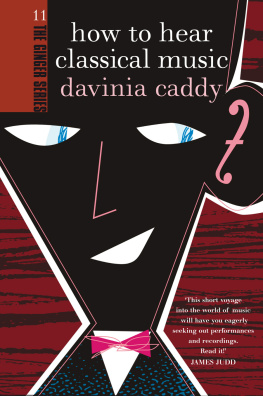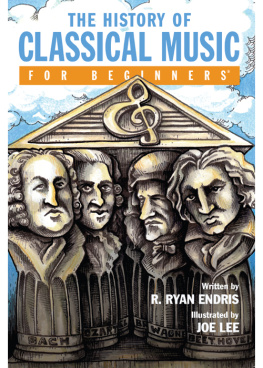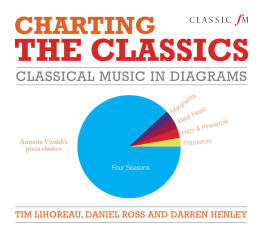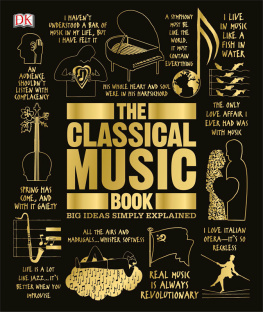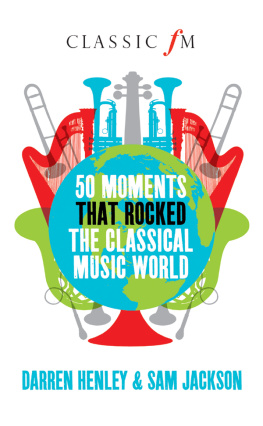Deutsch - British Literature and Classical Music
Here you can read online Deutsch - British Literature and Classical Music full text of the book (entire story) in english for free. Download pdf and epub, get meaning, cover and reviews about this ebook. year: 2015, publisher: Bloomsbury UK, genre: Romance novel. Description of the work, (preface) as well as reviews are available. Best literature library LitArk.com created for fans of good reading and offers a wide selection of genres:
Romance novel
Science fiction
Adventure
Detective
Science
History
Home and family
Prose
Art
Politics
Computer
Non-fiction
Religion
Business
Children
Humor
Choose a favorite category and find really read worthwhile books. Enjoy immersion in the world of imagination, feel the emotions of the characters or learn something new for yourself, make an fascinating discovery.
- Book:British Literature and Classical Music
- Author:
- Publisher:Bloomsbury UK
- Genre:
- Year:2015
- Rating:5 / 5
- Favourites:Add to favourites
- Your mark:
- 100
- 1
- 2
- 3
- 4
- 5
British Literature and Classical Music: summary, description and annotation
We offer to read an annotation, description, summary or preface (depends on what the author of the book "British Literature and Classical Music" wrote himself). If you haven't found the necessary information about the book — write in the comments, we will try to find it.
British Literature and Classical Music — read online for free the complete book (whole text) full work
Below is the text of the book, divided by pages. System saving the place of the last page read, allows you to conveniently read the book "British Literature and Classical Music" online for free, without having to search again every time where you left off. Put a bookmark, and you can go to the page where you finished reading at any time.
Font size:
Interval:
Bookmark:

British Literature and Classical Music
Historicizing Modernism
Series Editors
Matthew Feldman, Professor of Contemporary History, Teesside University, UK; and Erik
Tonning, Professor of English Literature and Culture, University of Bergen, Norway.
Assistant Editor: David Tucker, Postdoctoral Researcher, University of Chester, UK
Editorial Board
Professor Chris Ackerley, Department of English, University of Otago, New Zealand ;
Professor Ron Bush, St. Johns College, University of Oxford, UK ; Dr Finn Fordham,
Department of English, Royal Holloway, UK; Professor Steven Matthews, Department
of English, University of Reading, UK; Dr Mark Nixon, Departmentof English,
University of Reading, UK; Professor Shane Weller, Reader in Comparative Literature,
University of Kent, UK; and Professor Janet Wilson, University of Northampton, UK.
Historicizing Modernism challenges traditional literary interpretations by
taking an empirical approach to modernist writing: a direct response to
new documentary sources made available over the last decade.
Informed by archival research, and working beyond the usual European/American
avant-garde 190045 parameters, this series reassesses established readings of modernist
writers by developing fresh views of intellectual contexts and working methods.
Series Titles
Arun Kolatkar and Literary Modernism in India, Laetitia Zecchini
Broadcasting in the Modernist Era, edited by Matthew Feldman, Henry Mead and Erik Tonning
Ezra Pounds Adams Cantos , David Ten Eyck
Ezra Pounds Eriugena , Mark Byron
Great War Modernisms and The New Age Magazine , Paul Jackson
Katherine Mansfield and Literary Modernism , edited by Janet Wilson, Gerri Kimber and Susan Reid
Late Modernism and The English Intelligencer, Alex Latter
The Life and Work of Thomas MacGreevy, Susan Schreibman
Modern Manuscripts , Dirk Van Hulle
Reading Mina Loys Autobiographies , Sandeep Parmar
Reframing Yeats , Charles Ivan Armstrong
Samuel Beckett and Arnold Geulincx , David Tucker
Samuel Beckett and Science , Chris Ackerley
Samuel Beckett and The Bible , Iain Bailey
Samuel Becketts More Pricks Than Kicks , John Pilling
Samuel Becketts German Diaries 19361937 , Mark Nixon
T. E. Hulme and the Ideological Politics of Early Modernism, Henry Mead
Virginia Woolfs Late Cultural Criticism , Alice Wood
British Literature and
Classical Music
Cultural Contexts 18701945
David Deutsch
Bloomsbury Academic
An imprint of Bloomsbury Publishing Plc

Contents
This book series is devoted to the analysis of late-nineteenth to twentieth-century literary Modernism within its historical context. Historicizing Modernism thus stresses empirical accuracy and the value of primary sources (such as letters, diaries, notes, drafts, marginalia or other archival deposits) in developing monographs, scholarly editions and edited collections on Modernist authors and their texts. This may take a number of forms, such as manuscript study and annotated volumes; archival editions and genetic criticism; as well as mappings of interrelated historical milieus or ideas. To date, no book series has laid claim to this interdisciplinary, source-based territory for modern literature. Correspondingly, two burgeoning sub-disciplines of Modernism, Beckett studies and Pound studies, feature heavily as exemplars of the opportunities presented by manuscript research more widely. While an additional range of canonical authors will be covered here, this series also highlights the centrality of supposedly minor or occluded figures, not least in helping to establish broader intellectual genealogies of Modernist writing. Furthermore, while the series will be weighted towards the English-speaking world, studies of non-Anglophone Modernists whose writings are ripe for archivally-based exploration shall also be included.
A key aim of such historicizing is to reach beyond the familiar rhetoric of intellectual and artistic autonomy employed by many Modernists and their critical commentators. Such rhetorical moves can and should themselves be historically situated and reintegrated into the complex continuum of individual literary practices. This emphasis upon the contested self-definitions of Modernist writers, thinkers and critics may, in turn, prompt various reconsiderations of the boundaries delimiting the concept Modernism itself. Similarly, the very notion of historicizing Modernism remains debatable, and this series by no means discourages more theoretically informed approaches. On the contrary, the editors believe that the historical specificity encouraged by Historicizing Modernism may inspire a range of fundamental critiques along the way.
Matthew Feldman
Erik Tonning
This book is warmly dedicated to my mother and to my husband Kirk, the two of whom bore the brunt of it for many years and who are undoubtedly as glad as I am that it is finished. My sister and brother, Marthe and Steven, offered me the right mixture of support and indifference. The entire Walter family frequently asked me about the book and then listened to what I had to say, which meant a great deal. Woven throughout the book are thoughts of my grandparents, who in many ways brought me to this topic. Bella was always there making everything easier.
Id like to say here how fortunate I feel to have been invited into a department immensely warm in its collegiality and in its friendship. Id like to thank in particular James McNaughton, Albert Pionke, and Emily Wittman for critiquing much of this manuscript, which they did with insight, with attention to detail, and with grace. Id also like to thank Philip Beidler, Jen Drouin, Trudier Harris, and Cassie Smith for reading chapters and proposals along the way and for offering useful advice. Heather White answered questions with a smile. Tricia McElroy, Fred Whiting, Deborah Weiss, and Andy Crank have offered frequent food and laughter of equal excellence as they suffered my stopping by their homes and offices and even invited me back.
Outside of my home department, Sebastian Knowles continued to read my work and offer feedback and support long past the dissertation stage. Adam Parkes and Robin Darwall-Smith have read chapters and offered advice, which made this a stronger book. Chris Ackerley offered useful advice at a pivotal stage. I have been fortunate to find mentoring and long-lasting friendship from Kalpen Trivedi. If any of my sentences have clarity, this has something to do with Andrew Cole who took the time to insist on precision when we were in Athens, Georgia. James Dixon offered consistent inspiration. Brock Tyra and the University of Alabama Libraries staff have been wonderfully resourceful in helping me with obtaining source material for this study. David Avital, Matthew Feldman, Erik Tonning, and the staff at Bloomsbury Academic have been instrumental in bringing this study into the world as a book, for which I am exceptionally grateful.
In the course of four years, Tuscaloosa and Northport have become home. This is in no small part to my and Kirks friends and neighbors, in particular Paul Morgan and Jason Payne, Harriet Cabell Walker, Merinda Simmons, Nathan Loewen, Arlo Simmons-Loewen, Christina and Ella Frantom, and Alabamas brilliant brewers.
At times I enjoyed writing this and I hope you enjoy reading it. Any errors you may find within I affably attribute to those who talk loudly in libraries.
Font size:
Interval:
Bookmark:
Similar books «British Literature and Classical Music»
Look at similar books to British Literature and Classical Music. We have selected literature similar in name and meaning in the hope of providing readers with more options to find new, interesting, not yet read works.
Discussion, reviews of the book British Literature and Classical Music and just readers' own opinions. Leave your comments, write what you think about the work, its meaning or the main characters. Specify what exactly you liked and what you didn't like, and why you think so.

